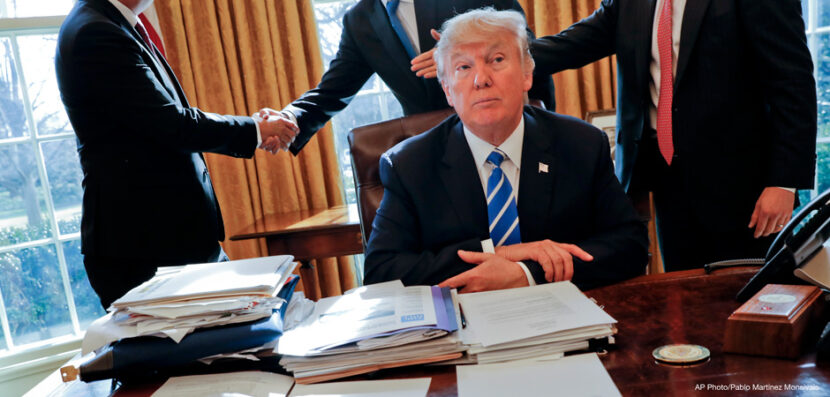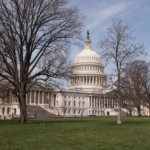
Trump versus Bannon
A new book about the presidency due out next week has caused a very public and explosive rift between Donald Trump and his former chief strategist, Stephen K. Bannon. Here, Election Central takes a look at why the book is so controversial, how the relationship between Trump and Bannon deteriorated so quickly (and so publicly), and what this disagreement could mean politically.
“Fire and Fury”
Rarely has a book become so infamous before it’s even had a chance to make it to the shelves. Fire and Fury: Inside the Trump White House, by Michael Wolff, is a look at Trump’s campaign and the tumultuous first year of his presidency. Using quotes from aides and advisers (sometimes named and sometimes anonymous), the book portrays Trump as thoroughly uninformed, unserious, and unprepared to perform the job of president. Among those quoted: Steve Bannon.
In the book, Bannon calls Ivanka Trump stupid. Worse, he says that the meetings between Donald Trump Jr., Paul Manafort, and Russian officials during the 2016 campaign were both unpatriotic and treasonous and he suggests in the book that the president was completely aware of these meetings (an accusation which Trump continues to deny).
Trump’s Response
The president went through at least three drafts of a statement with his communications director and other aides before responding. In his response, he claims that Steve Bannon was fired from his role as chief strategist (it was originally portrayed to the media that Bannon resigned of his own free will), and that he had no role in Trump’s 2016 victory. According to Trump’s response, Bannon has only ever had his own interests at heart. Trump also blames Bannon for Roy Moore’s Senate loss in Alabama last month. (Bannon had originally supported Moore and then urged Trump to as well.) This was a major embarrassment for the Trump administration and for the Republican Party in general.
Trump’s private attorney also sent Bannon a cease and desist letter, accusing him of libel and slander against the president and of breaking his written confidentiality agreement. During the 2016 campaign, Trump had all of his campaign staff sign an agreement to refrain from making any negative comments about Trump, his family, or his campaign.
So What Happens Now?
Congressional Republicans reportedly are thrilled about the “breakup” between Trump and Bannon, who has in the past vowed to run candidates to take down as many Republican incumbents as possible. However, there is also concern that the “breakup” will also further divide the already troubled Republican base, as conservatives decide whether to take Bannon’s side or the president’s.
For Democrats, responses are mixed as well. While on the one hand, the liberal base is enjoying these public revelations and criticisms of Trump, there is also the risk of backlash. Michael Wolff, the author of the book, has been accused many times in the past of using material that was supposed to be off the record, or worse, of outright inventing material for his books. White House officials say that Wolff spoke with the president only once, and for only a few minutes. Moreover, some of the aides and officials quoted in the book are already denying that they said such things. These mixed reviews may create sympathy for Trump and help further his consistent warning of “fake news” being out to get him.
Even Steve Bannon himself seems to have changed his tune. Last week, when asked in a satellite radio interview about his loyalty to the president, Bannon called Trump a “great man.”


